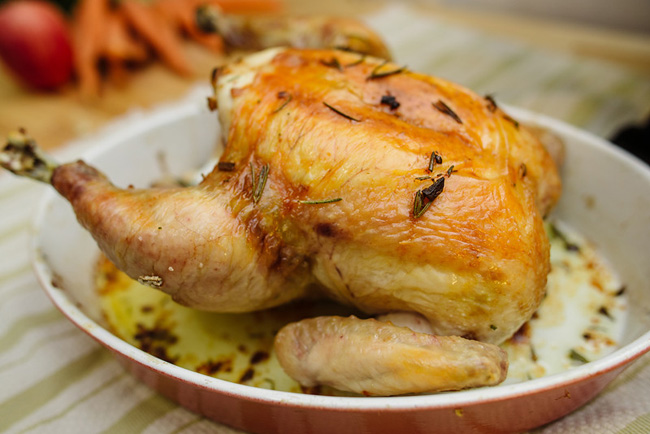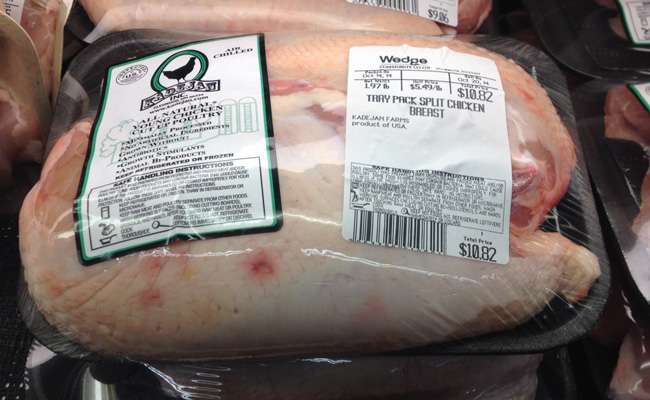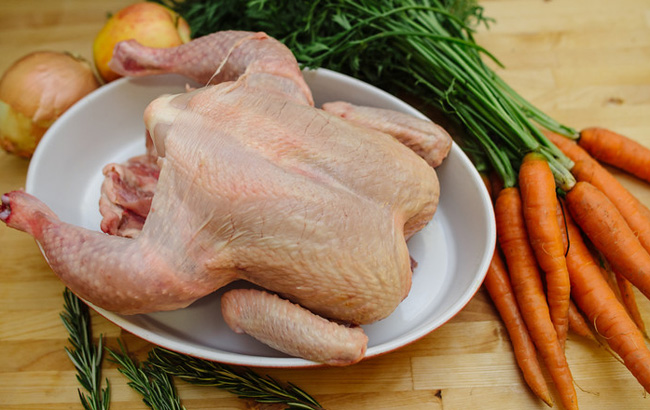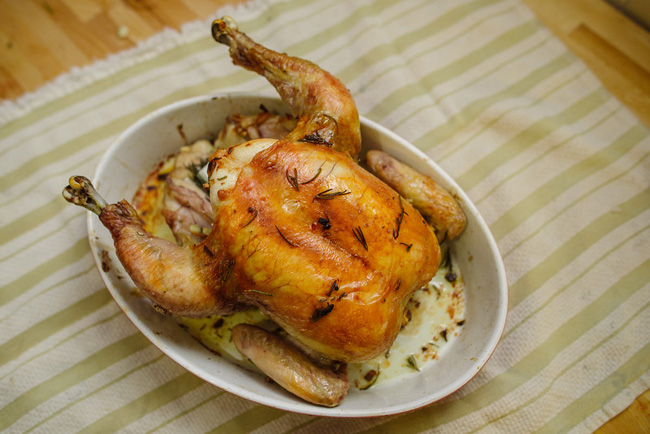
This post is sponsored by the Wedge Community Co-op.
Pete Thorfinnson started Kadejan Inc. in 1989 with the simple vision of providing for his family while providing consumers with a higher quality bird. Today, Kadejan raises free-range chickens and turkeys that are hand processed at its USDA-certified plant by a team of about 30 skilled employees. The birds are then air-chilled and delivered to selected local restaurants and grocery stores, including the Wedge Community Co-op, which has carried Kadejan chickens since establishing a meat and seafood department nearly 20 years ago. The only piece of the chicken puzzle Kadejan hasn’t yet put in place is the feed … not yet.

But that could all change if Kadejan’s crowd-funding campaign to build a non-GMO feed mill gets the backing it needs to become a reality. Providing non-GMO feed became a priority for Kadejan when its customers started calling to ask where the grain came from. Currently, GMOs make up about 90 percent of the corn and soy crop in the U.S., so finding non-GMO feed can be tricky.
The first step Kadejan took in sourcing non-GMO feed was to ask its current supplier and others in the area to simply buy non-GMO grains in the open market. But trying to work with large local feed companies proved surprisingly difficult. The suppliers would have needed to store Kadejan’s grain in dedicated bins and be responsible for preventing cross-contamination between conventional and organic products. Because Kadejan is such a small operation, representing only 1 to 2 percent of its supplier’s business, there wasn’t much incentive for the supplier to meet its needs: Too much hassle for not enough return. And even when Kadejan found someone willing to process non-GMO corn and soy grown in Minnesota, the cost was sky-high — an expense that would surely find its way onto the Kadejan birds’ price tags.

“What we really want is to keep our product affordable while fulfilling our vision to supply our chickens with locally grown, non-GMO grains,” said Kadejan employee Weston Gienger. “We realized the best way to do that is to just do it ourselves.” The feed mill is an idea that has been in the works for about two years. Kadejan hopes it will become a whirring, grinding reality in the near future. Not only will the mill give Kadejan control of the feed and its costs, but it could eventually serve a vital role in the region as a non-GMO feed hub for all sorts of small farming operations.
“Lots of the smaller mills are gone,” said Gienger. “We’ll be growing some of our own grain. We’ll know the farmers who are growing the rest. That will give us another level of transparency that we’ve been looking for. It’s not the easiest thing for us to do, but together we can really accomplish something different.”
If you want to help Kadejan achieve its goal of building a non-GMO feed mill, go to its website: www.kadejan.com to contribute to the project. And stop by the Wedge Community Co-op this Thanksgiving to pick up a free-range Kadejan turkey for yourself and your family.

